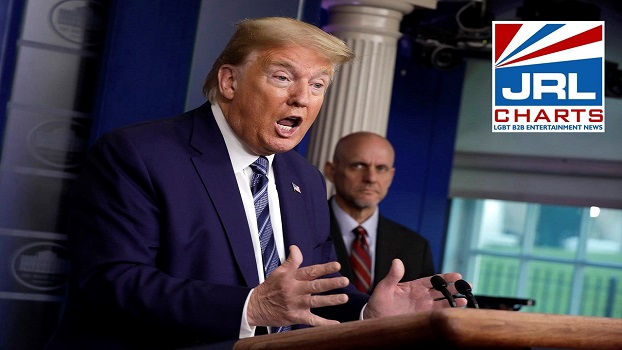WASHINGTON — (06-15-20) — The U.S. Supreme Court on Monday rejected the Trump administration‘ challenge to California’s “Sanctuary Law”, leaving intact rules that prohibit law enforcement officials from aiding Immigration agents in taking custody of undocumented immigrants as they are released from jail.
Justices Clarence Thomas and Samuel A. Alito Jr. were in the minority as they were the only ones to vote in favor of hearing the Trump administration’s appeal. The Supreme court’s decision is the second major blow to the Trump administration today as they also ruled that LGBTQ citizens are protected under the Civil Rights Act.
This is also a major victory for California in its long-running battle with President Trump.
The Trump administration’s challenge was launched by former Atty. Gen. Jeff Sessions. He insisted California was unconstitutionally interfering with federal immigration enforcement. But the Supreme Court, in a decision written by the late Justice Antonin Scalia, has said state and local officials are not obliged to carry out federal enforcement. That state’s rights doctrine appears to have prevailed. Even Trump’s two appointees — Justice Neil M. Gorsuch and Brett M. Kavanaugh — refused to hear the administration’s appeal.
The court also refused to hear several cases involving gun rights and police immunity. The justices for now appear unready to reconsider past rulings that gave states ample authority to regulate guns and to shield police from lawsuits.
“Aliens are present and may remain in the United States only as provided for under the auspices of federal immigration law,” Solicitor General Noel Francisco said in his appeal. “It therefore is the United States, not California, that ‘retains the right’ to set the conditions under which aliens in this country may be detained, released, and removed. As a result of SB 54, criminal aliens have evaded the detention and removal that Congress prescribed, and have instead returned to the civilian population, where they are disproportionately likely to commit additional crimes.”
In response, California’s lawyers argued the Constitution’s 10th Amendment makes clear that state officials need not enforce a federal law. They relied in part on a 1997 opinion written by the late Justice Antonin Scalia, which held that federal authorities may not “commandeer” state or local officials to carry out a federal law. In that case, Printz vs. United States, the high court said local sheriffs could not be required to conduct background checks on buyers of hand guns.
The same principle applies when enforcing federal immigration law, said California Atty. Gen. Xavier Becerra in defense of the law. “SB 54 regulates the use of the state’s own resources. It establishes the conditions under which state and local law enforcement agencies may deploy public funds and personnel to assist with federal immigration enforcement,” he wrote.
California’s lawyers also stressed that the state cooperates with federal agents if they have a judicial warrant or if the immigrants are being held for serious or violent crimes, including prisoners who are serving time in the state system.
Article by: Paul Goldberg, Staff Writer
Sign Up Below for #JRLCHARTS Breaking News and Follow @JRLCHARTS Daily on Twitter
- Apprentice Devall Chapter 5: The Covenant Unleashed - April 18, 2024
- Suspect Captured in $13K Adult Toys and Vapes Heist - April 18, 2024
- Eldorado Presents: Undercover Pleasure with Pipedream - April 18, 2024







